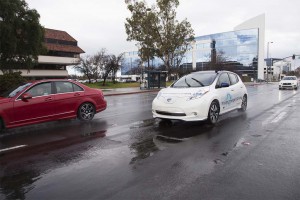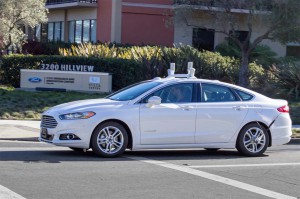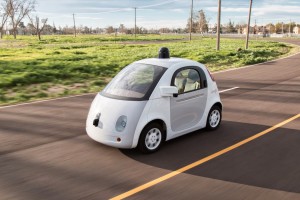Three-quarters of Americans say they would be “afraid” to ride in an autonomous vehicle, according to a new AAA study, yet nearly two-thirds also say they want some of the basic technologies needed to make self-driving cars work.
If anything, familiarity brings comfort. Those who drive a vehicle with features like adaptive cruise control, automatic emergency braking and lane-keeping assist are more likely to feel comfortable with the idea of letting a car do the driving.
“With the rapid advancement towards autonomous vehicles, American drivers may be hesitant to give up full control,” said John Nielsen, AAA’s managing director of Automotive Engineering and Repair. “What Americans may not realize is that the building blocks towards self-driving cars are already in today’s vehicles and the technology is constantly improving and well-trusted by those who have experienced it.”
Those building blocks are being added fast. Within a matter of weeks, a consortium of 10 automakers and the National Highway Traffic Safety Administration is expected to announce plans to make forward collision warning and auto braking standard equipment. A recent study by the Insurance Institute for Highway Safety, meanwhile, found those features reduced rear-end collisions by as much as 40%.
(Volvo ready to toss the car key. Other makers set to follow. Click Here to learn why.)
The first true semi-autonomous vehicle, the Tesla Model S, is now on the road and Cadillac, Mercedes-Benz and others hope to have systems of their own available by next year. Nissan has announced plans to put its first fully autonomous vehicle into production by 2020.
But there are potential obstacles, including legislative restrictions and, perhaps most important of all, the challenge of winning over consumers.
Barely one in four Americans would be comfortable with a car driving itself. Asked why, fully 84% of drivers are convinced their skills behind the wheel are better than autonomous technology. The irony is that federal data show 90% of all fatal accidents are the result of driver error. Other reasons for consumer resistance include:
- Fear the technology is too new and unproven (cited by 60% of those surveyed);
- The cost of the technology, 57%;
- Not knowing enough about the technology 50%; and
- Finding it annoying, 45%.
One in four female drivers say the technology is too complicated, a reason cited by 12% of male drivers.
(Risky behavior by drivers running rampant, warns new study. Click Here for more.)

An autonomous Nissan Leaf prototype on the road in Tokyo traffic. Production is set to begin in 2020.
The younger the driver, meanwhile, the more the cost factors into the equation. While 49% of Baby Boomers say they don’t want to pay for autonomous technology, 63% of Millennials cite that issue, according to AAA.
Perhaps ironically, 61% of those surveyed want some of the latest, semi-autonomous features in their vehicles, such as forward collision warning. The vast major cite safety as the primary reason, followed by convenience, the goal of reducing stress and the desire to have the latest technology. Boomers, at 89%, are the most likely to cite safety as a reason to have the technology.
“While six-in-10 drivers want semi-autonomous technology in their next vehicle, there are still 40 percent of Americans that are either undecided or reluctant to purchase these features,” said AAA’s Nielsen. “It’s clear that education is the key to addressing consumer hesitation towards these features and AAA’s on-going effort to evaluate vehicle technologies, highlighting both the benefits and limitations, is designed to help drivers make informed choices.”
(Nissan disables remote app for Leaf EV to lock out hackers. Click Here for the story.)


